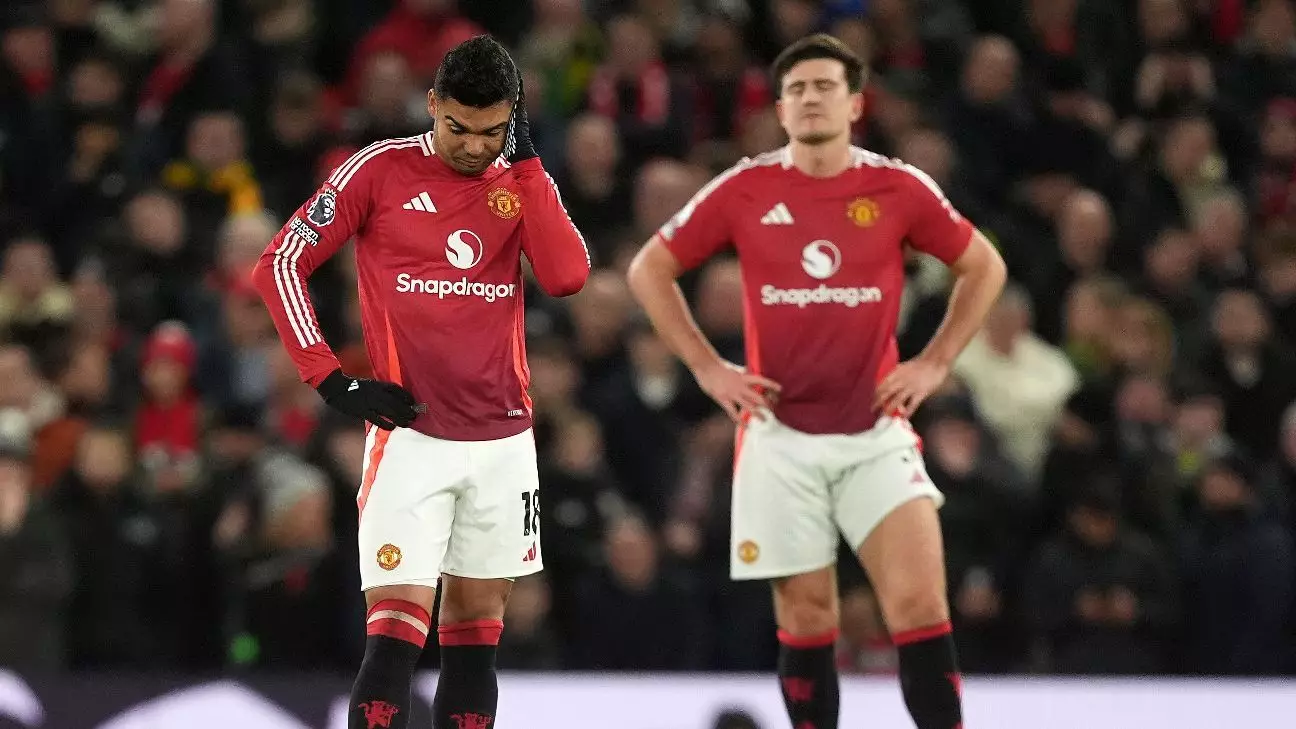Manchester United is in the midst of one of the darkest chapters in its storied history. With a dwindling fanbase’s faith and an alarming string of dismal performances, the club appears to be on a fast track toward ignominy. This descent was starkly illustrated during a recent 2-0 defeat against Newcastle United, where discontent turned into near-mutiny, leaving players and coaching staff grappling with overwhelming pressure. The once-glorious Old Trafford is now a theater of despair, echoing the discontent of supporters who are turning on their team.
The atmosphere during the match against Newcastle was tense and charged, reflective of a fanbase at its breaking point. Within just 30 minutes of play, the mood shifted dramatically as Manchester United found themselves down 2-0. The occasion became a scapegoat for the frailty of the entire squad when Joshua Zirkzee was pulled off—the cacophony of cheers that followed his substitution was a poignant commentary on the lack of performance from all on the pitch. The urgency of the situation could not be missed; fans were not merely voicing frustration at one player, but at a systemic failure that had left the team lost and dispirited.
What is even more disconcerting is that this reaction encapsulates a broader sentiment among supporters regarding their team’s potential relegation. For the first time since the late 1970s, Manchester United has experienced three consecutive league defeats at home. Of even greater concern is the fact that they sit precariously just above the relegation zone as they head into the new year—a position unthinkable for a club of this stature.
In the wake of these troubling performances, head coach Ruben Amorim finds himself at the center of heated discussions about blame and accountability. While Amorim insists on taking responsibility and refraining from criticizing his players publicly, one has to wonder how long he can maintain this stance. The evidence of poor player performance is mounting, with fundamental errors—mostly in defense—becoming routine. Yet, for Amorim, the challenge lies not only in securing better results but in trying to instill a sense of belief among his players.
His tactical decisions have been scrutinized, particularly his persistent use of a 3-4-3 formation. Critics argue that this system may not be conducive to the players at his disposal. However, it is crucial to note that tactical formations alone cannot account for the lack of basic skills displayed—missed tackles, errant passes, and questionable decision-making plagued the match against Newcastle. Even if Amorim were to adapt his tactics, would it be enough to rectify the bigger issue of player mentality and application?
The figures surrounding Manchester United’s performance convey a grim reality. Six losses in eight matches create a narrative that is hard to contest. When was the last time fans have experienced such a level of persistent failure? The club has not seen such a bleak run since the early 1930s—a time that none now living can recall. This bleak history creates pressure not just on Amorim but on the very fabric of the club’s identity.
Every defeat raises the looming specter of relegation, and as the club’s leadership grapples with this terrifying prospect, the culture that once defined United appears to evaporate. Not only is the team suffering on the pitch, but a dark cloud looms over its very identity. For fans who have spent decades supporting the club, this is a deeply troubling time.
The upcoming fixtures mirror an arduous road ahead, particularly with a visit to league leaders Liverpool looming. As the anger of the fanbase intensifies and results fail to materialize, Amorim desperately needs a turnaround to prevent his tenure from becoming another cautionary tale in the Manchester United saga. The weight of expectation has never lifted, and with it comes the responsibility not just to perform but to restore a sense of pride in the club’s brand.
The situation offers little comfort; however, football is unpredictable and the urgent need for change may provoke a response from the players. The urgency to deliver results cannot be understated, and all eyes will be on Old Trafford as they strive for redemption. If they can capture even a glimpse of their historic form, it might just begin to quell the storm brewing in the hearts of their supporters.
As it stands, Manchester United exists at a precipice, teetering between disgrace and resurgence. Only time will tell whether they will rise to reignite their legacy or continue their descent into obscurity.

